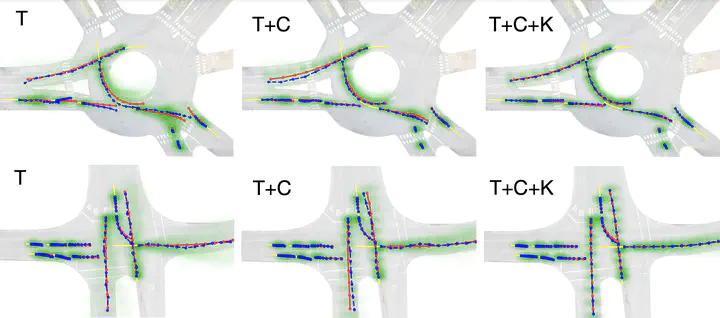
Abstract
An effective understanding of the environment and accurate trajectory prediction of surrounding dynamic obstacles are indispensable for intelligent mobile systems (e.g. autonomous vehicles and social robots) to achieve safe and high-quality planning when they navigate in highly interactive and crowded scenarios. Due to the existence of frequent interactions and uncertainty in the scene evolution, it is desired for the prediction system to enable relational reasoning on different entities and provide a distribution of future trajectories for each agent. In this paper, we propose a generic generative neural system (called STG-DAT) for multi-agent trajectory prediction involving heterogeneous agents. The system takes a step forward to explicit interaction modeling by incorporating relational inductive biases with a dynamic graph representation and leverages both trajectory and scene context information. We also employ an efficient kinematic constraint layer applied to vehicle trajectory prediction. The constraint not only ensures physical feasibility but also enhances model performance. Moreover, the proposed prediction model can be easily adopted by multi-target tracking frameworks. The tracking accuracy proves to be improved by empirical results. The proposed system is evaluated on three public benchmark datasets for trajectory prediction, where the agents cover pedestrians, cyclists and on-road vehicles. The experimental results demonstrate that our model achieves better performance than various baseline approaches in terms of prediction and tracking accuracy.